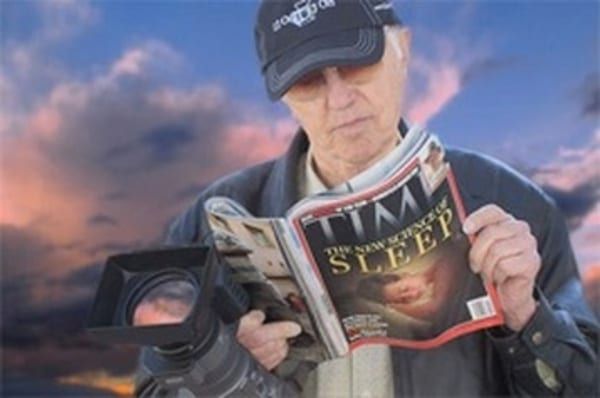Eye For Film >> Movies >> Who Needs Sleep? (2006) Film Review
Who Needs Sleep?
Reviewed by: Keith Hennessey Brown

This is - pardon the pun - a wake up call for anyone in any industry with a culture of long hours.
The facts are simple: not getting enough sleep is bad. It's bad for you, bad for your family and bad for society as a whole. Perhaps the only beneficiaries are the faceless corporations for whom your accident or ill health in the pursuit of profits for their shareholders is but an externality - i.e. a cost they're not bearing. But even there it isn't as clear cut, as a tired worker is an inefficient worker.

Of course, the problem with Hollywood - director Haskell Wexler's primary target here - is that the economic facts that apply in the wider society - the secondary target, albeit specifically that of the US variety - are obscured by its glamour, the convenient fiction that the faceless money men at the head of the corporations really give a damn what the product is or how it was made so long as it brings in the money. In their scheme of things, there's no other measure of the value of a film.
The problem the veteran cinematographer and socially committed documentarist exposes is that the workers - for that is what they are - within the Hollywood system cannot or will not go up against it. Whether actor, director, cinematographer or third assistant whatever, it's a case of "suicide pact, you first". Everyone, it seems, is a replaceable part and no one wants to be tarred with the reputation of being difficult. So no one makes a fuss and they all take it, day-in-week-out, for months at a time.
Indeed, when we witness Conrad W Hall, son of Conrad Hall, the DP on The Road To Perdition whom Wexler contends basically worked himself to death, collecting a posthumous Oscar for his father, it's hard not to feel that it's the system renewing itself, recovering the potential critic with a worthless shiny bauble. (What is it that Hyman Roth says in The Godfather, Part II? Something about "Good health [being] the most important thing. More than success, more than money, more than power...")
From a European perspective, the film's main weakness is its American-centric approach. Although Wexler uses Continental Europe as a point of contrast, noting how - for example - workers in Italy are not permitted to do more than five hours overtime a week, he somewhat negates the import of this by slapping Nessun Dorma on the soundtrack in just about the crudest shorthand scene-setting manner imaginable.
Likewise, speaking from a specifically British perspective, it's worth remembering how successive governments here have responded to legislation like the EU's Working Time Directive - they may say tomato, while we say tomato, but we're heading in their wrong direction...
Even closer to home, you also wonder if there isn't a certain irony in EIFF playing a film like this in a festival context that relies heavily upon an annual influx of young, enthusiastic volunteers willing to work long hours for low wages - often subsidised by regular employment - because that's all part of the culture of the arts, validated by their aforementioned glamour.
Maybe there's a difference in that the enthusiastic volunteer isn't alienated in/from their work. But, says that little Marxist voice of doubt, what if someone is so alienated thanks to the glamour - illusions - of the industry that they don't even realise it? What if there's really no escape from the system, except for death?
Reviewed on: 07 Sep 2006














